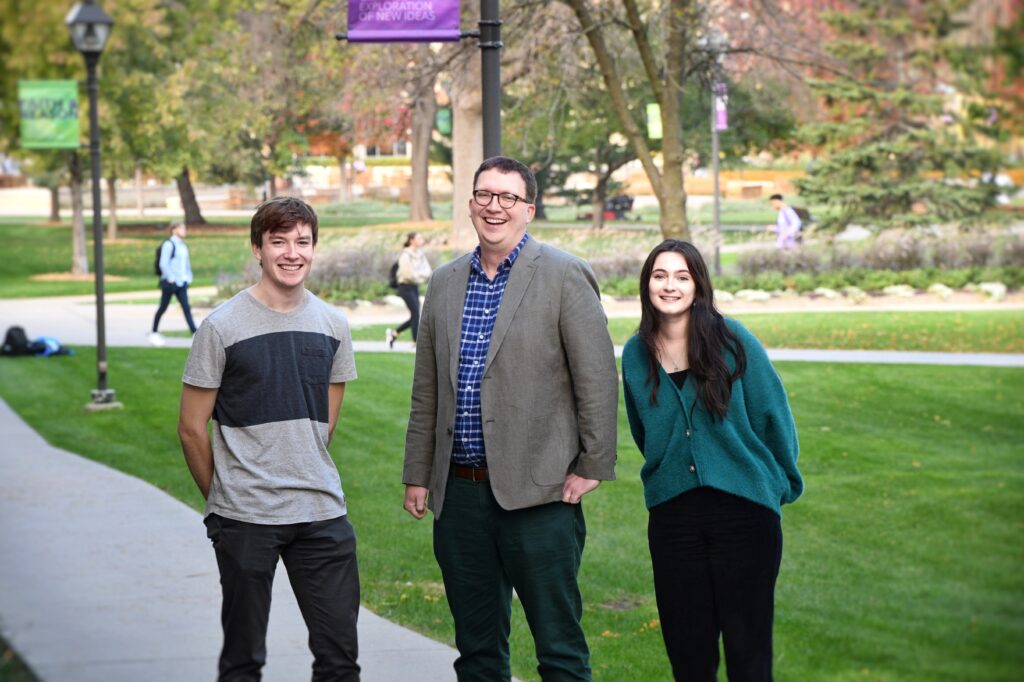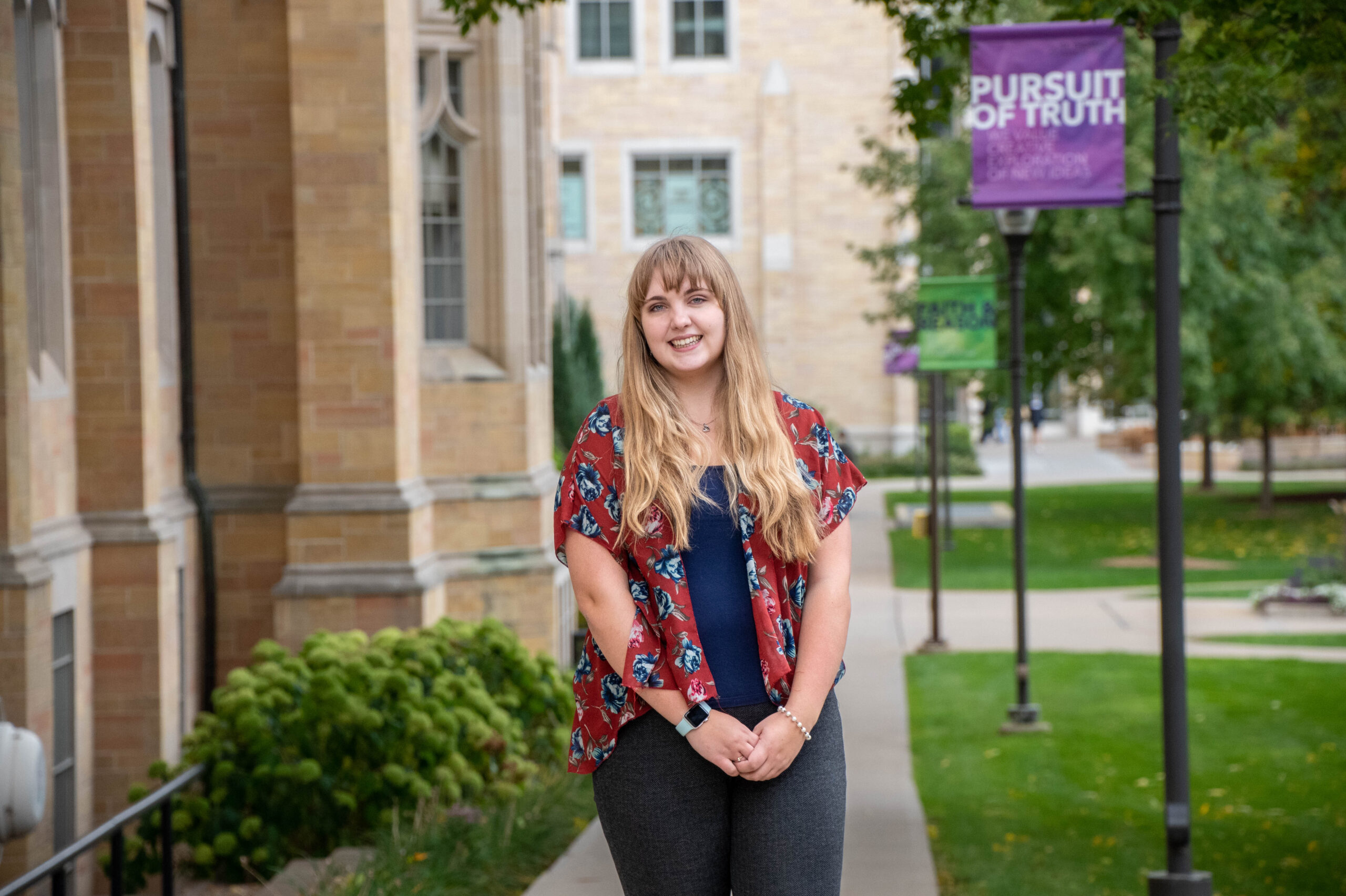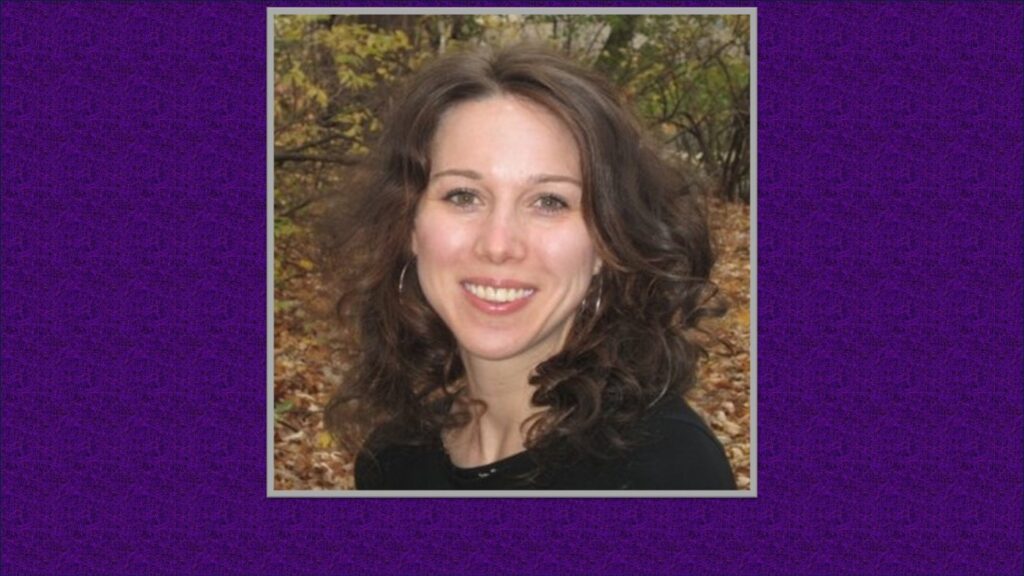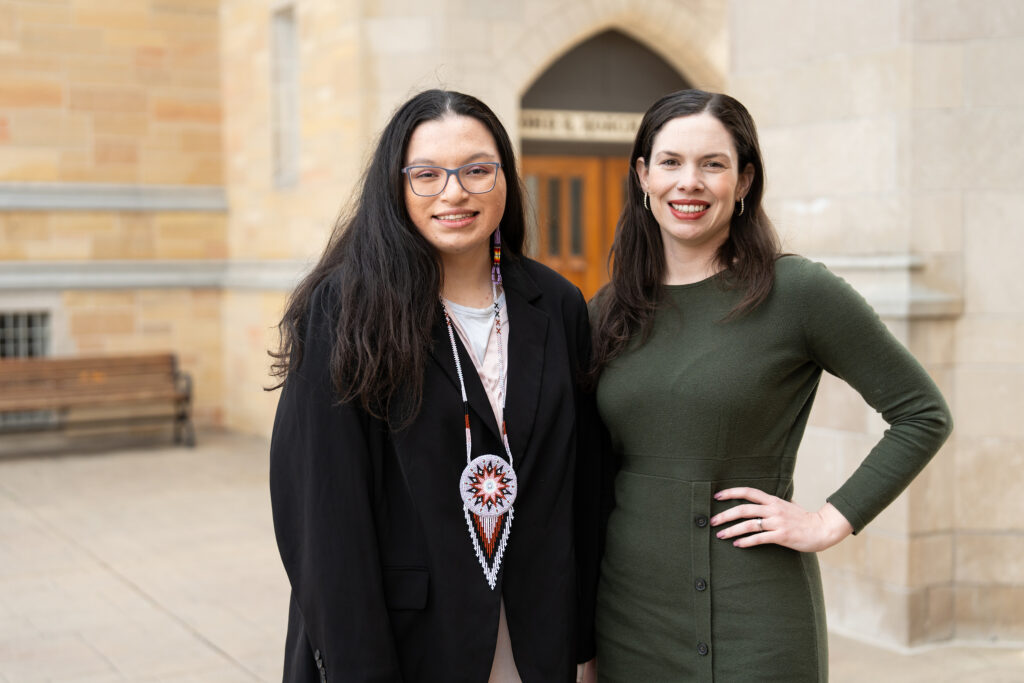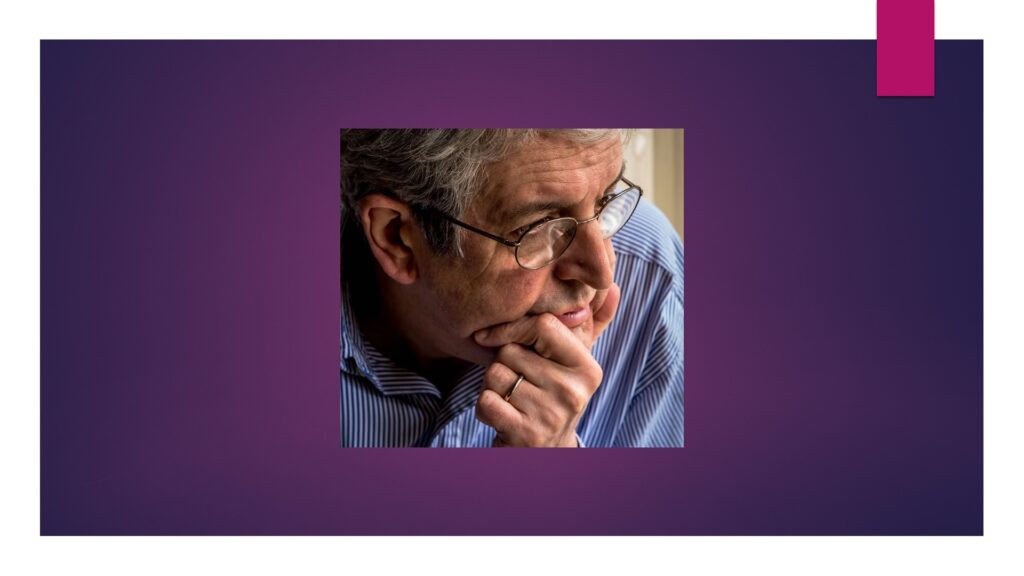From mailboxes stuffed with campaign flyers to pollsters dialing up potential voters, it’s hard not to notice that midterm elections are drawing near.
For many voters, they’ll be excited to see an end to all the campaigning and deluge of television advertisements, but for political researchers at the University of St. Thomas, this is their moment to shine, their Super Bowl to analyze.
Alexis Studniski ’23 is one of those researchers. A double major in political science and women, gender, and sexuality studies, Studniski will be watching the results on Nov. 8 with particular interest, zeroing in on women’s representation in office and how those candidates got their start.
This fall Studniski is partnering with Dr. Angela High-Pippert, professor and chair of the Political Science Department, on a comprehensive study of women’s campaign training programs. Together the duo is examining the ins and outs of about two dozen programs across the nation that work with women interested in running for office. It’s these kinds of programs that they believe may prove key to leveling the playing field.
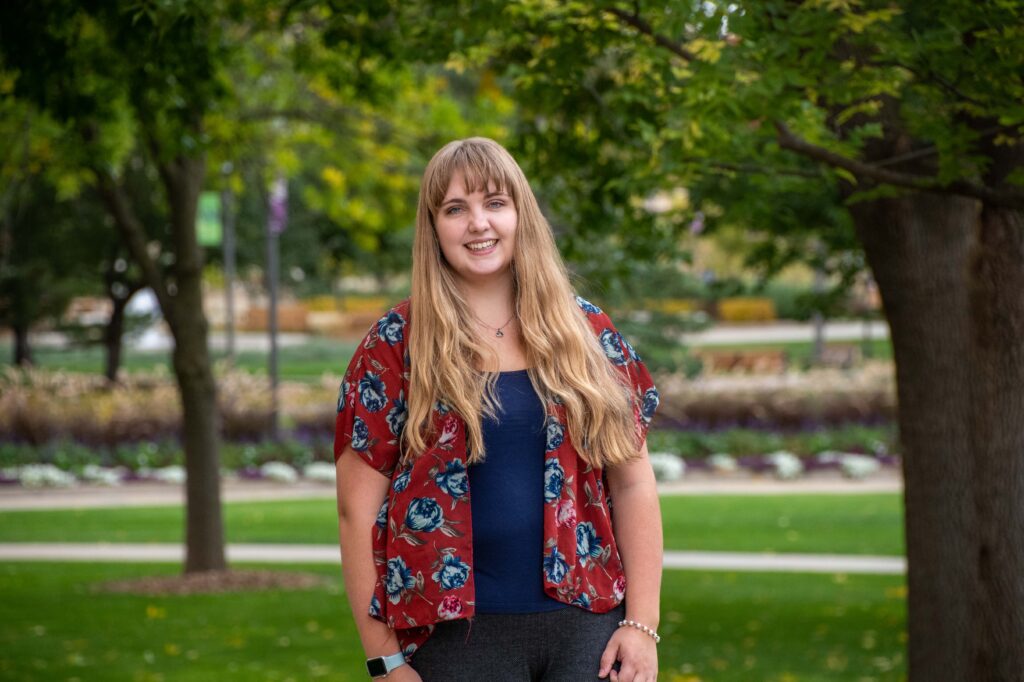
“There are a lot of societal factors, but women are much more hesitant to run for office,” Studniski said. “One thing we see in these programs is they have to be asked to run.”
Participants in various campaign trainings are encouraged to not only evaluate themselves as potential candidates for office, but to reach out to their friends as well.
“You'll often hear about women not applying for jobs because they don't exactly meet the qualifications while men will apply for jobs they're not qualified for,” Studniski said. “Sometimes women need to be asked to run for office, not once but several times.”
That’s an experience that Professor Angela High-Pippert knows all too well. As the director of Ready to Run Minnesota, a nonpartisan campaign training program for women, High-Pippert sees firsthand the hesitation many women show before running for office.
“Most of the time, we don't think of ourselves as potential candidates,” High-Pippert said. “Women have to be asked many times to run, and that takes a village, right? And it's very helpful if there’s a structure in place that is designed to point people in the right direction.”
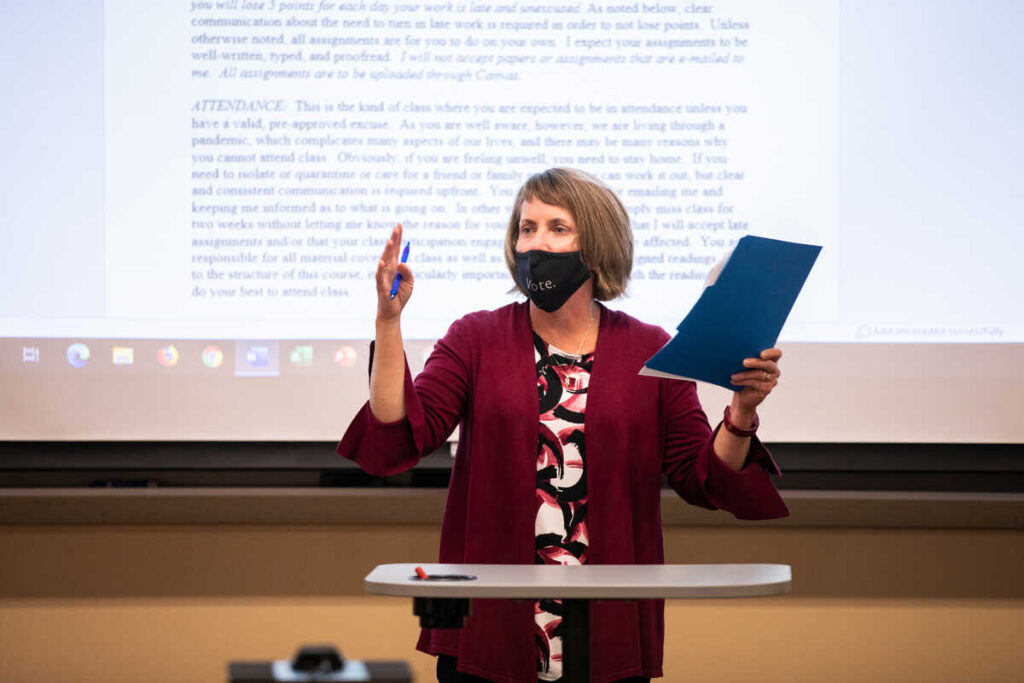
Women have made significant gains in representation over the last decade. In 2018 more women ran for office than ever before, and it paid off, especially in the U.S. Congress, where nearly one in four seats were won by women, a new record.
Despite that measurable momentum, women still have ground to cover before they catch up with their male counterparts.
“We just need more women running for office. Sometimes they’re going to win, sometimes they’re going to lose, but we really need to normalize the process,” High-Pippert said.
And that’s a big reason why High-Pippert and Studniski are putting these training programs under the microscope. They want to find out what’s working across the country and what’s not, eventually putting what they learn to use for the common good.
The team will share their findings at the National Women's Studies Association annual conference being held in Minneapolis next month. Meanwhile, they also plan to incorporate what they learn at Ready to Run Minnesota.
“The conference paper is a pretty exciting part of it, but we’ll also use the research that we’re doing in an applied way,” High-Pippert said. “We’re interested in seeing how these other programs create space for consciousness raising. How can we create space for participants to have some time to talk to one another and build a support network?”
While they look for answers, High-Pippert is excited to share in this work with one of her students.
“I think it’s really important for students to understand that they have the ability to contribute to these larger conversations,” High-Pippert said. “And that shows the power of the liberal arts. What we do in the classroom has real significance within the academic world and outside of it.”
For Studniski, the opportunity to work with High-Pippert is a valuable one – allowing her to build real-world experience long before graduation.
“This is worthy research and it’s important,” Studniski said. “We’re going to meet with professionals and talk about that research. It makes it feel more real, rather than something that you would just turn in for a class.”
The midterm elections will certainly have real-world consequences, and it’s a future that Studniski hopes involves more women at each passing step.
“That’s something that these campaign training programs provide – they serve as another person who is telling these women that they are a good candidate for office and they can actually do it,” Studniski said.
Studniski hopes to champion that message long after she wraps up her research at St. Thomas.
“Women in politics is definitely my passion,” Studniski said. “I’m not sure exactly what that’s going to look like for me. But I would love to get involved in these campaign training programs, or some sort of women’s organization.”
Related Articles
